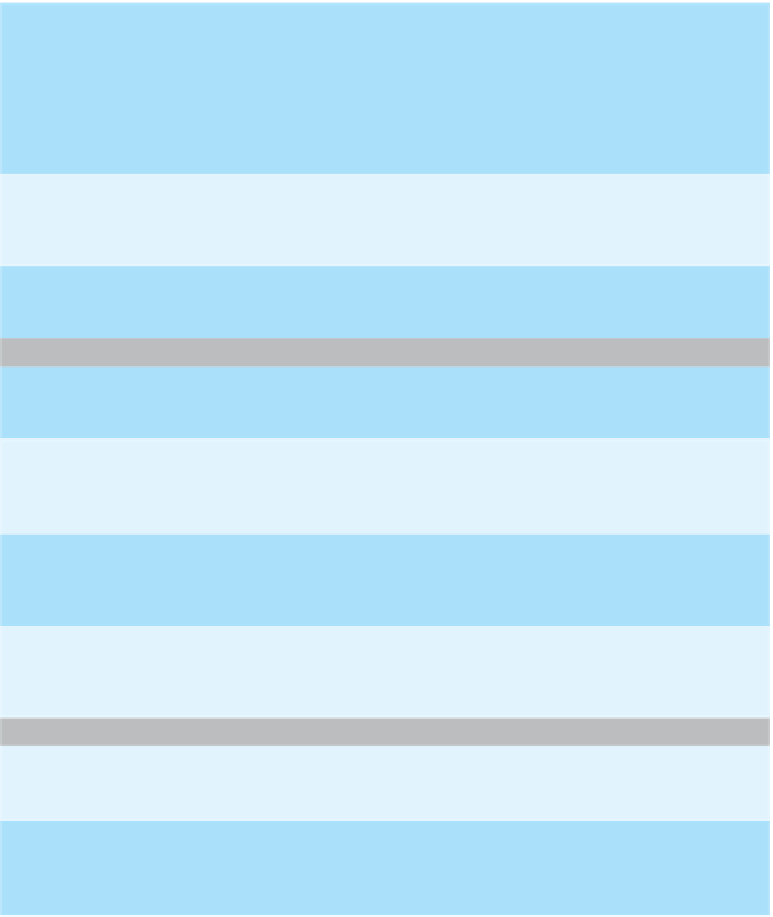Java Reference
In-Depth Information
public boolean
remove(Object theElement)
Removes the fi rst occurrence of
theElement
from the calling object. If
theElement
is
found in the calling object, then each element in the calling object with an index greater than
or equal to
theElement
's index is decreased to have an index that is one less than the value
it had previously. Returns
true
if
theElement
was found (and removed). Returns
false
if
theElement
was not found in the calling object. If the element was removed, the size is
decreased by one. The capacity is not changed.
protected void
removeRange(
int
fromIndex,
int
toIndex)
Removes all elements with index greater than or equal to
fromIndex
and strictly less than
toIndex
. Be sure to note that this method is
protected
, not
public
.
public void
clear()
Removes all elements from the calling object and sets its size to zero.
SEARCH METHODS
public boolean
isEmpty()
Returns
true
if the calling object is empty (that is, has size
0)
; otherwise returns
false
.
public boolean
contains(Object target)
Returns
true
if
target
is an element of the calling object; otherwise returns
false
. Uses the
method
equals
of the object
target
to test for equality.
public int
indexOf(Object target)
Returns the index of the fi rst element that is equal to
target
. Uses the method
equals
of the
object
target
to test for equality. Returns −
1
if
target
is not found.
public int
lastIndexOf(Object target)
Returns the index of the last element that is equal to
target
. Uses the method
equals
of the
object
target
to test for equality. Returns −
1
if
target
is not found.
ITERATORS
public
Iterator<T> iterator()
Returns an iterator for the calling object. Iterators are discussed in Section 16.3.
public
ListIterator<T> listIterator()
Returns a
ListIterator<T>
for the calling object.
ListIterator<T>
is discussed in
Section 16.3.

